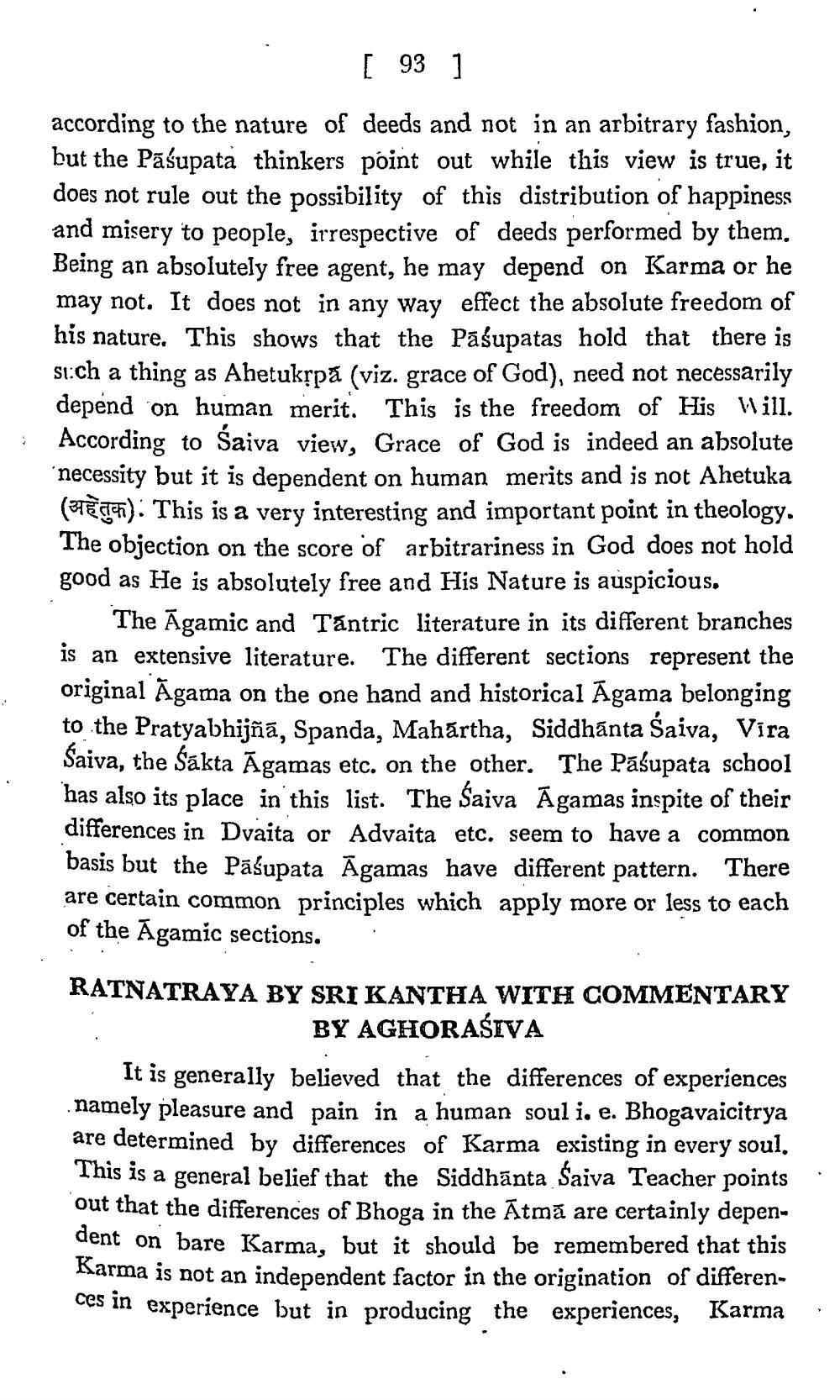________________
[ 93 ]
according to the nature of deeds and not in an arbitrary fashion, but the Pāśupata thinkers point out while this view is true, it does not rule out the possibility of this distribution of happiness and misery to people, irrespective of deeds performed by them. Being an absolutely free agent, he may depend on Karma or he may not. It does not in any way effect the absolute freedom of his nature. This shows that the Pasupatas hold that there is sich a thing as Ahetukrpa (viz. grace of God), need not necessarily depend on human merit. This is the freedom of His Mill. According to Saiva view, Grace of God is indeed an absolute necessity but it is dependent on human merits and is not Ahetuka (teglich). This is a very interesting and important point in theology. The objection on the score of arbitrariness in God does not hold good as He is absolutely free and His Nature is auspicious.
The Āgamic and Tántric literature in its different branches is an extensive literature. The different sections represent the original Agama on the one hand and historical Agama belonging to the Pratyabhijñā, Spanda, Mahártha, Siddhanta Saiva, Vira Saiva, the Sakta Āgamas etc. on the other. The Pasupata school has also its place in this list. The Saiva Āgamas inspite of their differences in Dvaita or Advaita etc. seem to have a common basis but the Pāśupata Āgamas have different pattern. There are certain common principles which apply more or less to each of the Agamic sections.
RATNATRAYA BY SRI KANTHA WITH COMMENTARY
BY AGHORAŠIVA
It is generally believed that the differences of experiences namely pleasure and pain in a human soul i. e. Bhogavaicitrya are determined by differences of Karma existing in every soul. This is a general belief that the Siddhānta Saiva Teacher points out that the differences of Bhoga in the Ātmă are certainly dependent on bare Karma, but it should be remembered that this Karma is not an independent factor in the origination of differences in experience but in producing the experiences, Karma




